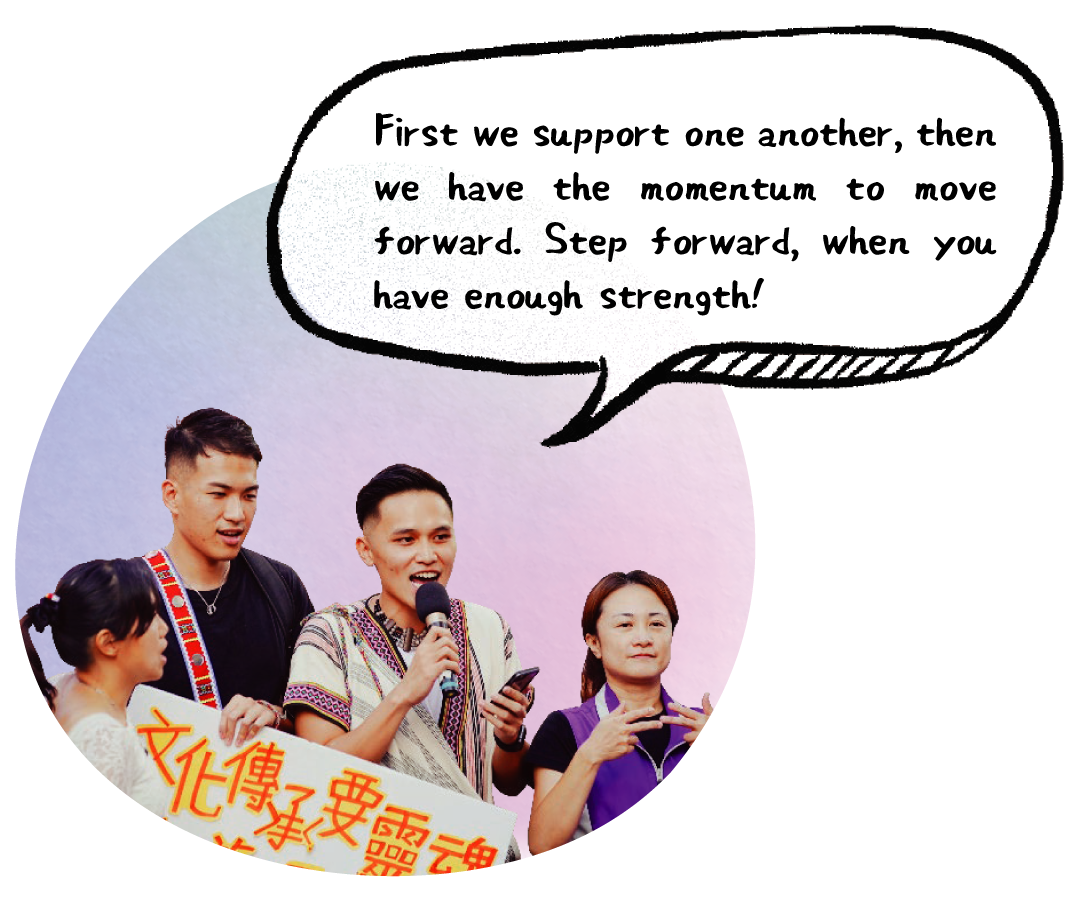
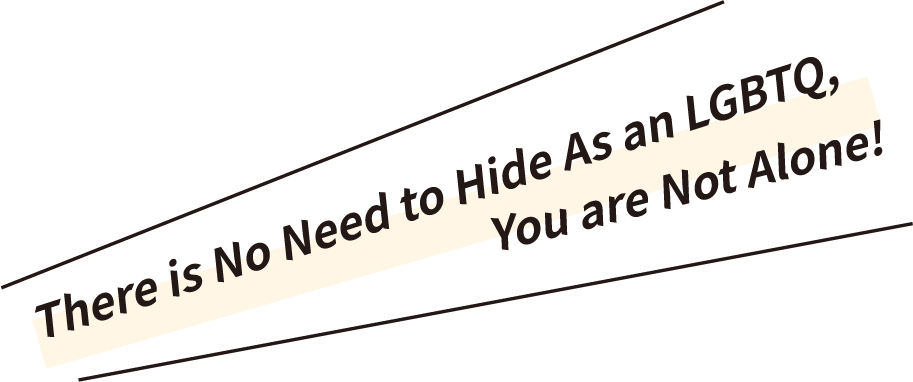
Compared to LGBTQ in general, indigenous LGBTQ are more afraid of being seen. Fearless of social opinion, Taiwan Indigenous LGBTQ Alliance (TILA) steps forward courageously, giving many the courage they need. They build a place where “the minority of the minority” can understand and support one another and feel at ease.
May 2019, the Marriage Equality Bill was adopted. In the significant first year of same-sex marriage in Taiwan, TILA established accordingly in September.
Despite being established less than two years ago, Ken, the founder of TILA, has long been a key person in the indigenous LGBTQ world. A Truku person from Hualien and 32 this year, Ken has volunteered at Taiwan Tongzhi Hotline Association (hereafter referred to as the Hotline) since 18 and is the first generation daring to openly step forward and defend the rights of indigenous LGBTQ. Many see him as the spiritual leader.

The First Time He Felt Saved
The establishment of TILA has much to do with Ken's experiences in life. His sexual awakening took place in his second year at middle school, when he realized he had a crush on his neighboring male classmate. He wrote down his worry and shared it with his homeroom teacher, who replied, “you are psycho, you should go and see a therapist!”
The year he entered high school, there were a lot of news coverage on Brokeback Mountain winning awards. At a boy's school, Ken watched as his classmates teasingly put on shows of boy kissing and hugging boy, ridiculing the whole thing. He would rather take his lunch elsewhere on the campus than eating it in the classroom. After his homeroom teacher discovered him, despite being afraid of another psycho accusation, he worked up the courage to confess to his teacher for being gay, and things took a different turn.
The teacher explained to the class solemnly that there are indigenous and non-indigenous people in the class, there are single-parent families and those who are raised by grandparents, there are also people who like either boys or girls, “these people sit among you every single day, I hope you get to know people with different qualities. If you do not try to understand and say things that hurt other people, you do not deserve to be their classmate or a student of mine!”
Ken watched his teacher on stage, feeling extremely emotional, “that was the first time I felt saved! Someone with authority taking actions to show that I support you. It was hugely influential and pushed me down the road of social movements and becoming an influence on others.” Not long after, Ken “came out” to the whole class and confessed his sexual orientation at home in the second year of high school.
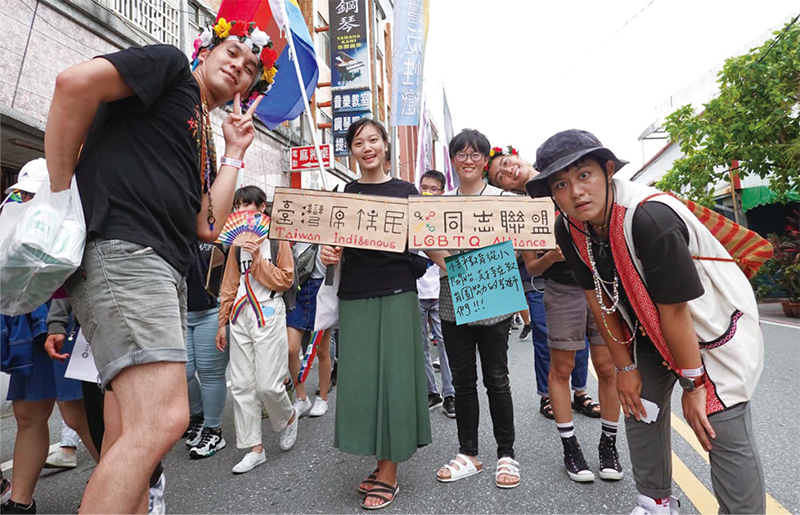
TILA at 2019 Hualien Pride Parade.
Let Everyone Know That
They are Not Alone
Having volunteered at the Hotline for many years with very few other indigenous LGBTQ volunteers, whenever discussion came up regarding indigenous issues at the Hotline, he always spoke up. Over the time, he became a principal figure in relevant issues. Others suggested that he could form an indigenous LGBTQ group and lead the development of indigenous LGBTQ.
Therefore, Ken began wearing indigenous clothing every year starting 2013, making appearances in pride parades all over Taiwan, “I was the fearless one! Always making appearances and taking the stage to speak.” Akuanx Kulatana, a senior member of TILA, says, “it was not easy at all for Ken to step forward, since indigenous LGBTQ wasn't even part of the discussion then.”

Two years in the parade, he failed in attracting more people in joining him. “That was when I realized, ‘afraid of coming forward’ is an issue.” Ken reasoned that indigenous peoples are intricately connected to their communities, “you do something in Taipei, and your family in Pingtung immediately knows what you have done.” Coming out is not just about facing the family, but the opinions of the entire indigenous community. It did not help that the religion prevalent in indigenous communities is largely anti-LGBTQ, making the LGBTQ issue even more of a taboo.
Later, Ken decided to change his method, and held instead an “indigenous LGBTQ chatroom” at the Hotline every month. The gatherings and talks help them get to know one another and support each other. “First we support one another, then we have the momentum to move forward.” Akuanx Kulatana agrees with this method, “let everyone know that they are not alone.” But to make real progress in indigenous LGBTQ issues, an official organization is still required, hence the establishment of TILA.
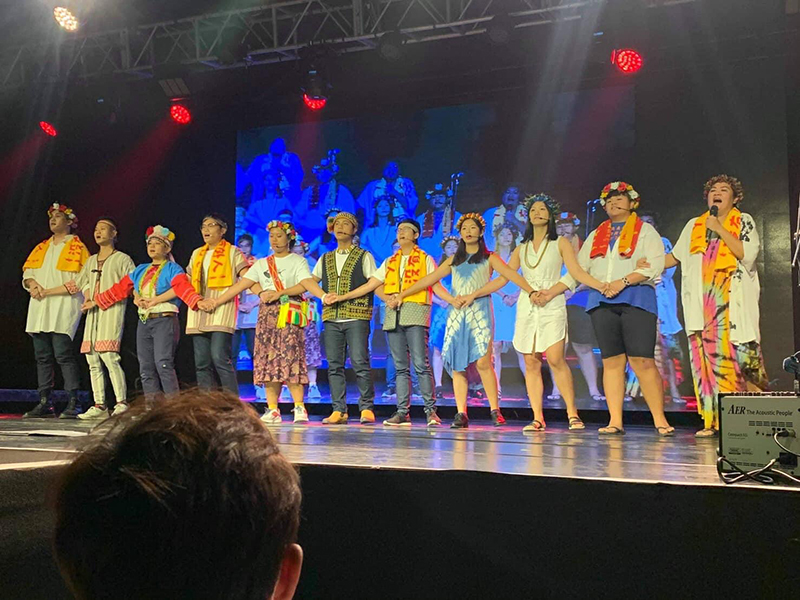
TILA members perform on stage at the 2020 Hotline fundraising event.
Stand Up Front
So More People can See Indigenous LGBTQ
There are currently a little over 70 people in the TILA online group, and 15 core members. With no official staff at TILA, their members mostly work in media, social work, church, and long-term care. Therefore, in addition to LGBTQ issues, many other indigenous issues are also discussed in the online group and petitioned in the name of TILA.
TILA also form alliances with other groups, including Taiwan Indigenous Teachers’ Association, Adju Music Festival, National Dong Hwa University, and Taiwan Tongzhi Hotline Association. Every year, TILA members deliver short talks at school clubs, and share the stories of their lives. Akuanx Kulatana says, “this allows people who cannot step forward a gentle way to participate in the issues.”
Currently 31 years old, Akuanx Kulatana started the first pride parade in Hualien when he was just a freshman at National Dong Hwa University. Akuanx Kulatana laughs, “I still feel awkward when people call me a social activist. I see myself as just supporting the people important to me, I am not afraid of coming out so I fight for the chance to be seen, hoping that people can understand more about the situation of indigenous LGBTQ.”
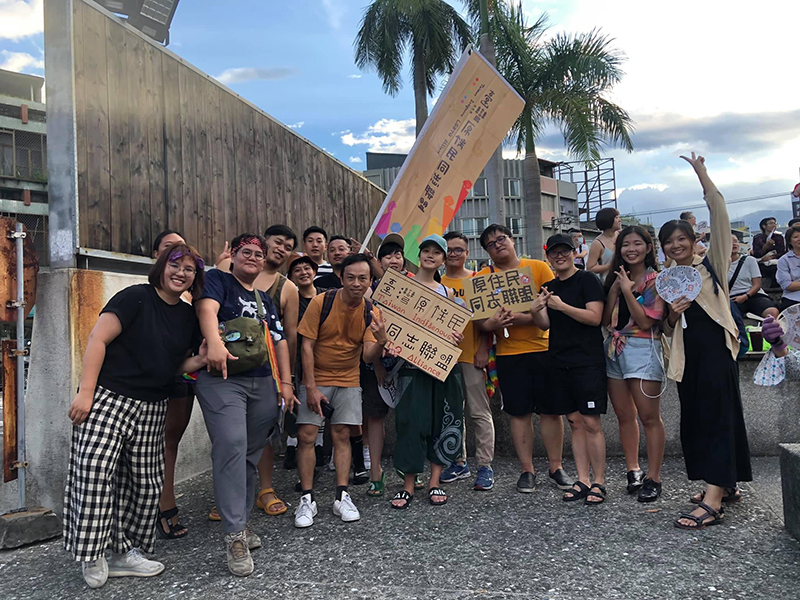
TILA at 2020 Hualien Pride Parade.
You can Walk a Little Further
with Some Company
In 2018, when the debate is hot on marriage equality bill, many politicians and church deny the existence of indigenous LGBTQ. In the name of their indigenous chatroom, Ken and a few members spoke at the marriage equality concert that year, “we are here, we should be seen. We are human too; we have the right to marriage too. We are indigenous, we are also LGBTQ, the two identities are inseparable because that is our life.”
Prior to this, indigenous issues were rarely discussed even in the LGBTQ community, but with Ken coming forward to speak, many indigenous people wearing indigenous clothing showed up in the pride parade that year. With the establishment of TILA in the following year, even more indigenous people showed up, and they even formed their own troupe and marched with songs and dance. Akuanx Kulatana believes that “stepping forward is definitely influential!”
Indigenous LGBTQ in the older generation can only hide their true identity, when people in Ken's generation began coming forward, combined with the free flow of information on the internet, a lot of courage is shared. Ken recalls meeting an undergraduate student in indigenous clothing during a pride parade, who said to him that he realized he was not alone after watching a video of Ken’s speech and became determined to participate in the parade in his indigenous clothing.
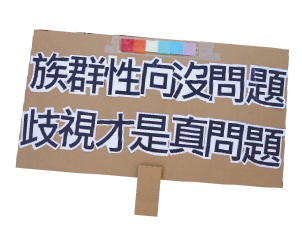
Seeing everyone coming forward, Ken was overwhelmed, “I marched alone for two years, and when no one joined me, I really doubted myself. I criticized myself and thought that I must have done something wrong. But even if you have been walking for so long, when people do come and share their experiences with you, you feel like you can walk a little further.”
“Afraid of coming forward” used to be the biggest challenge for TILA, but now they are in no rush. Akuanx Kulatana says quietly, “those who can step forward and advocate can come and fight with us, those who are unable to step forward can keep each other company in silence.” Ken reiterates, “step forward, when you have enough strength!” The journey of indigenous LGBTQ movement is difficult, but they are never in despair. Together, they support the rainbow in indigenous communities with movements.




